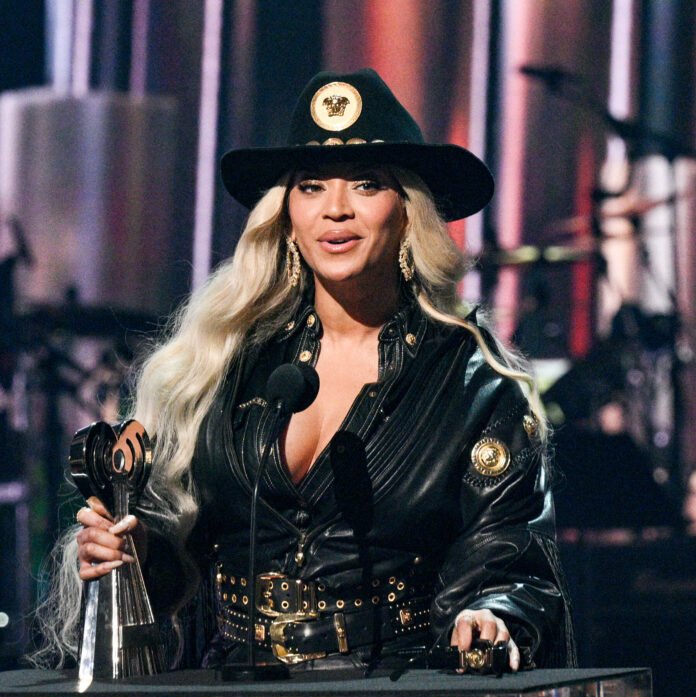Beyonce’s rhinestone cowboy hat and Taylor Swift’s couture ensembles are not just fashion statements; they’re also economic powerhouses in the world of pop star fashion. As mega-concerts return post-Covid-19, the symbiotic relationship between fashion brands and music icons is once again in the spotlight.
Stage costumes have always been a crucial component of a pop star’s image, serving as a means of self-expression and a reflection of their artistry. Moreover, they represent a significant opportunity for fashion designers to showcase their creativity and gain widespread exposure. A prime example is Madonna’s iconic conical bra, designed by Jean Paul Gaultier, which became synonymous with the pop icon’s persona in the early 1990s, catapulting the French designer to global fame.
Throughout history, music stars have utilized fashion as a powerful tool for communication, conveying messages and emotions through their attire. From Edith Piaf’s timeless little black dress to Elton John’s flamboyant glasses and David Bowie’s avant-garde fashion statements, artists have left an indelible mark on the fashion landscape.
Today, the collaboration between pop stars and fashion brands has evolved into a highly lucrative business model. Designers vie for the opportunity to dress music icons for their concerts and public appearances, knowing that the exposure can translate into significant sales and brand recognition. Beyonce and Taylor Swift, two of the biggest names in the industry, wield considerable influence over fashion trends and consumer behavior.
Beyonce’s rhinestone cowboy hat, worn during her electrifying performances, instantly became a coveted fashion accessory, sparking demand among fans and fashion enthusiasts alike. Similarly, Taylor Swift’s couture ensembles, meticulously curated for each stage of her career, have solidified her status as a style icon.
The economics of pop star fashion extend beyond concert attire to encompass endorsement deals, collaborations, and brand partnerships. Music icons frequently lend their star power to fashion campaigns and product launches, leveraging their massive fan base to drive sales and brand engagement.
The evolution of pop star fashion reflects broader cultural shifts and societal trends, serving as a barometer of changing tastes and values. In recent years, there has been a growing emphasis on inclusivity, diversity, and sustainability within the fashion industry, driven in part by consumer demand and social movements. Pop stars have played a pivotal role in championing these causes through their fashion choices and public advocacy.
For example, Beyonce has been vocal about promoting body positivity and celebrating diverse beauty standards. Her fashion line, Ivy Park, embraces inclusivity by offering a wide range of sizes and featuring models of different ethnicities and body types. Similarly, Taylor Swift has used her platform to advocate for LGBTQ+ rights and gender equality, often incorporating symbols of empowerment and solidarity into her wardrobe.
Moreover, pop stars have become increasingly attuned to the environmental impact of fashion production and consumption. In response to the climate crisis, many artists are prioritizing sustainable and eco-friendly fashion options, opting for ethically sourced materials and supporting environmentally conscious brands. Beyonce’s collaboration with Adidas for her Ivy Park collection, which emphasizes sustainability and recyclability, is a notable example of this trend.
The democratization of fashion, facilitated by social media and digital platforms, has also reshaped the relationship between pop stars and their fans. With the rise of influencer culture, artists are no longer just style icons but also influential tastemakers, capable of shaping consumer behavior and driving sales. Social media platforms like Instagram have become essential tools for artists to showcase their personal style, connect with fans, and promote fashion collaborations.
Furthermore, the Covid-19 pandemic has accelerated the digital transformation of the fashion industry, prompting pop stars to explore innovative ways of engaging with their audience and monetizing their influence online. Virtual concerts, livestreamed performances, and digital fashion shows have emerged as viable alternatives to traditional in-person events, allowing artists to reach global audiences and generate revenue from merchandising and brand partnerships.
As pop star fashion continues to evolve, it will undoubtedly remain a dynamic and influential force in popular culture. With their unparalleled creativity, charisma, and global reach, artists like Beyonce and Taylor Swift will continue to shape trends, inspire fans, and drive the fashion conversation forward. In an era defined by constant change and disruption, pop star fashion serves as a beacon of creativity, resilience, and self-expression, reflecting the diverse tapestry of human experience.

